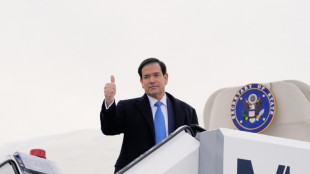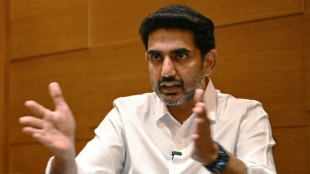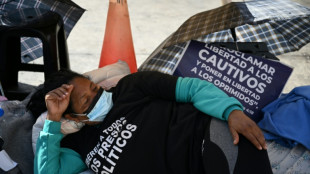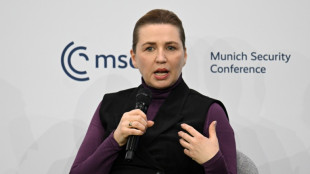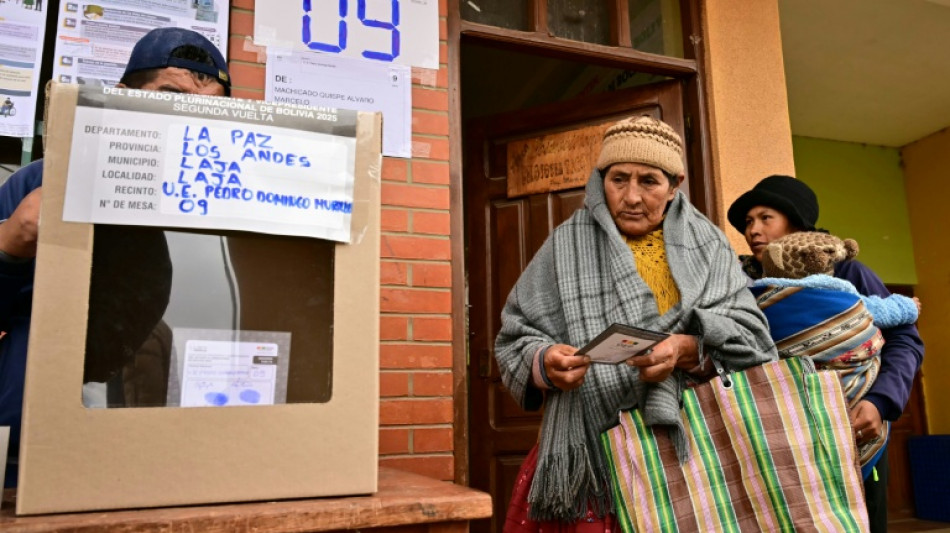

Polls close as Bolivians look to the right for economic salvation
Polls closed in a Bolivian presidential election Sunday with voters choosing between two pro-business candidates, ending two decades of socialist rule that have left the beleaguered South American nation deep in economic crisis.
With dollars and fuel in short supply and annual inflation at more than 20 percent, weary voters snubbed the Movement Toward Socialism party founded by former president Evo Morales in a first electoral round in August.
Bolivia is enduring its worst economic crisis in decades, with long queues now a common sight at gas stations.
"We hope the country improves," homemaker Maria Eugenia Penaranda, 56, said, bundled up against the cold as she cast her vote in La Paz, which is 3,600 meters (11,800 feet) above sea level.
"We cannot make ends meet. There is a lot of suffering. Too much," she told AFP.
Polling stations opened at 8:00 am (1200 GMT) and closed eight hours later. Nearly eight million people were eligible to cast ballots and voting is mandatory. Early results are expected around midnight GMT.
The election pits economist and senator Rodrigo Paz, 58, against former interim president Jorge Quiroga, 65, an engineer by training.
Either way, the election will close out an economic experiment marked by initial prosperity funded by Morales's nationalization of gas reserves.
But the boom was followed by bust, notably critical shortages of fuel and foreign currency under outgoing leader Luis Arce.
Successive governments underinvested in the country's hydrocarbons sector, once the backbone of the economy.
Later, production plummeted and Bolivia almost depleted its dollar reserves to sustain a universal subsidy for fuel that it could no longer afford to import.
- Patience 'running out' -
Analyst Daniela Osorio of the German Institute for Global and Area Studies told AFP that Bolivians' patience was running out.
Once the election is over, she warned, "if the winner does not take measures to help the most vulnerable, this could lead to a social uprising."
Whoever emerges victorious Sunday faces an uphill task, inheriting an economy in recession, according to the World Bank.
To fix the economy, Quiroga has proposed opening to international investment and foreign loans, while Paz supports a "capitalism for all" approach with decentralization, lower taxes and fiscal discipline.
Both say they want to maintain social programs while stabilizing the economy, but economists have said the two things are not possible at the same time.
Quiroga and Paz have both proposed cutting the universal fuel subsidy, keeping it only for public transportation.
- 'Difficult to heal' -
Neither man would have a party majority in Congress, meaning they would need to make concessions to have laws passed, said Bolivian sociologist Maria Teresa Zegada.
"If the people of Bolivia grant me the opportunity to be president," Paz said as he voted Sunday, "my format will be that of consensus."
Quiroga has promised to return US dollars and fuel to the country before Christmas, financed by international loans.
"It breaks my heart to see so many vehicles in line," he said after voting in southern La Paz. He asked drivers waiting to fuel up to make an effort to leave the lines for a moment to go vote.
Zegada said a bitter campaign marked by personal attacks has left "wounds that will be difficult to heal."
Outside of Congress, either man would face stiff opposition from Morales, who was constitutionally barred from seeking another term but is still a political player.
"Even weakened, Morales remains a factor of potential destabilization," said Osorio.
Morales is the target of an arrest warrant for human trafficking over an alleged sexual relationship with a minor -- an accusation he denies.
Arce is due to leave office on November 8 after serving a single presidential term that began in 2020. Bolivia's constitution allows for two terms, but he did not seek reelection.
M.Scott--NG
